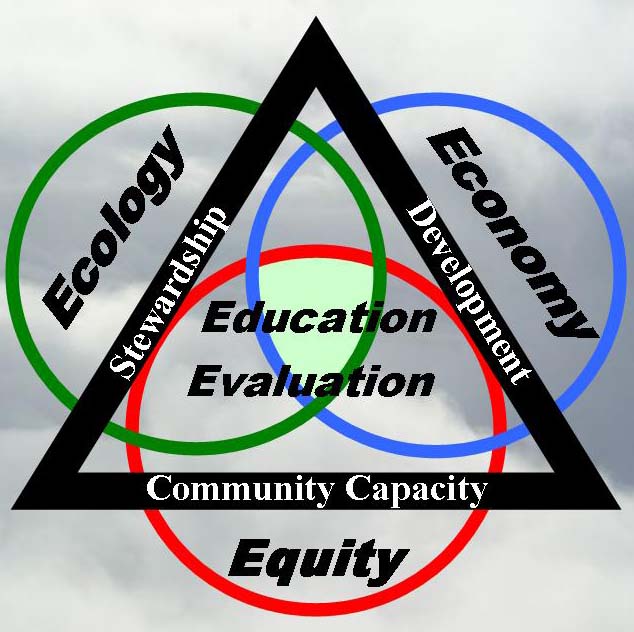|
Increasing urbanization
has significant effects on human consumption, environmental
damage, and supply
of food. As populations continue
to migrate to cities more effective strategies are required
to maintain and/or enhance the sustainability of these places.
All communities struggle with economic well-being, environmental
quality, & community character. Assistance is required
at the intersection of people & place - where economic
needs and desires all too often undermine community and quality
of life.
The expert-assisted
community development programs of Five E's Unlimited can
provide effective tools and techniques
coupled with training
in community leadership, that focus on the following
areas.
- sustainable economic revitalization
- community capacity building
- low-impact development (LID)
strategies
- stormwater management processes
- village center/urban re-development
- social and civic responsibility
- relationships and partnerships
In its urban sustainability
work, Five E's Unlimited promotes the concept of Urban
Design with Nature, which presents a template for creating
walkable and transit-served urbanism regions integrated
with high-performance buildings and high performance
infrastructure. Our work in presenting
the case for sustainable urbanism, focuses discussion
on communication approaches (and community engagement
strategies)
to help sway decision makers whose
thinking needs to change in order to implement sustainable
urbanism concepts. We assist clients to embrace sustainable
urbanism concepts at many different geographic scales.
Five E's works
with urban centers to conduct City
Metabolism Assessments and develop strategic planning activities
around the outcomes of this assessment. A city metabolism
assessment focuses upon reducing the ecological footprint of
settlements
(resource inputs and
waste
outputs)
while simultaneously
improving their quality of life (health, housing, accessibility,
community, etc.). The approach includes consideration of eight
criteria based on natural resources, environmental protection,
quality places, housing diversity, jobs-economy, access, quality
of services, and governance. In addition to these eight criteria,
from a system's perspective it is not possible to change a
city unless there is a transformative approach
to
transport.
Focusing on transportation can enable a city to tackle
a range of sustainability issues together. Transport and transportation-oriented
development
must be considered as a central means of creating a sustainable
future for cities.
|

